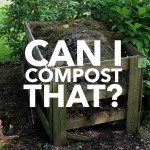I’ve been sharing tips for making various rooms in our homes more eco friendly over the last few months, and today I’m here to talk about how to get a more sustainable kitchen. The best part is, most of these tips are super easy to implement, don’t take much time and will probably even save you money, how excellent is that! As always, I’d love to hear your tips too of course!

1. Buy Local
There’s really two parts to buying local, and both are important to creating a more sustainable kitchen. The first is to buy your fruit and vegetables from locally grown sources, to reduce the environmental impacts relating to travel, storage and refrigeration as well as ensuring you’re getting produce at its prime. The second is to support local stores (selling local produce of course!) as the money is then much more likely to go back into your local community and you’re supporting local jobs. Buying in season, locally grown produce is generally cheaper than the imported alternatives too, so everyone wins!
2. Reduce Packaging
The kitchen is probably one of the main culprits in our homes for bringing in packaging, so every time you can choose an option with no, or limited, packaging the better. This includes things like choosing the loose spinach over the pre-packaged option, dividing up nuts rather than buying them in individual packets, or shopping at a bulk food store where you can take your own bags and containers along.
It’s also important that any packaging that you do end up with is properly disposed of, which thankfully for most part should mean recycling it. Glass, cardboard, hard plastics – these can all go straight in your recycling bin, whilst soft scrunchable plastics can normally be recycled back at the supermarket.
3. Use Homemade Cleaners
I don’t know about you, but after a few hours in my kitchen it is left looking like a tornado went through and needs some seriously scrubbing, but thankfully I can do this in an eco-friendly way with my homemade cleaning products and some instructions from Kitchen Home! Vinegar, baking soda, eucalyptus oil and lemon juice are your best friends on the cleaning front, and using homemade options reduces your exposure to strong chemicals and bleaches which I definitely don’t want around my food. If you need some green cleaning ideas, I shared my recipes a little while back right here!
4. Get Composting
Food scraps make up a huge proportion of the average Australian bin, and contrary to popular belief they don’t just break down in landfill, they actually end up rotting and produce huge amounts of methane into the atmosphere. We can rectify this, and give ourselves a more sustainable kitchen & garden at the same time, by popping any food scraps we create into a compost bin. This could be as large and elaborate as you like, but can also be as small as a bokashi bucket on your balcony (which is what I have). The resulting compost is wonderful for then adding to your soil, meaning you’ll have healthier, happier plants growing in your garden too.
5. Remember Your Reusables
One of the easiest ways to make your kitchen more eco friendly is just to remember to take your reusables with you when doing your food shopping. This should include both reusable shopping bags as well as things like reusable produce bags as well. Each time you can say no to a plastic bag you’re making a difference, so if there’s only one change you can commit to today, make it this one!
6. Reduce Food Waste
Whilst composting our food scraps is excellent, even better is to try and reduce the amount of food waste we create in the first place. This includes avoiding buying things we’re not going to use as well as trying to use more of each item (I’m looking at you, broccoli stem!). I find the best way to do this is to properly meal plan before going to the fruit & veggie shop each week, as then I have a detailed list of everything I’m going to be eating on the week ahead. I also try and turn any scraps that I can into homemade vegetable stock before whatever is left ends up in my compost bin. If you need help getting started with meal planning, I put together a 101 Guide which is available free to everyone on the ISPP email list.
7. Make Your Fridge Work Better
Our fridge can be one of the most energy hungry items in our kitchen, so making it work better is a simple way to end up with a more sustainable kitchen all round. First things first, test that the seals are still working properly by popping a piece of paper up to the closed door and see if it moves at all. If it is fluttering around then your fridge is leaking air and it might be time to replace the seals. You should also clean the coils at the back of your fridge a couple of times a year to help them remove the heat from your fridge more efficiently.
As for the inside of your fridge, it’s important to not put hot food straight in, as it makes it kick in to overdrive to cool everything down. It’s better to let things cool on the bench (except in cases where bacteria might be an issue) before popping them in the fridge. Everything should also be covered, either with a lid or something like these food covers to ensure the moisture stays in the food and your fridge doesn’t think it needs to remove the moisture for you. Lastly, you should try and keep your fridge as full as possible as it means your fridge doesn’t have to work as hard. Some people use things like water bottles to fill up empty spaces, but whatever works best for you!
8. Grow Your Own
Growing your own food is about as local as you can possibly get, and definitely helps create a more sustainable kitchen. It doesn’t need to include all your vegetables, simply growing some herbs is an excellent place to start and will mean you can just pop out and cut a little of whatever it is you need at the time, meaning you’re likely to be able to cut down on your food waste too. I love growing chillis as well, they’re very hardy and you can freeze or preserve excess product meaning you can have homegrown chilli all year round!
9. Batch Cook
Preheating the oven can use a lot of energy, so whenever possible try and batch cook to make the most of the oven while it is on. This could mean doing your baking straight before popping on the Sunday roast, or cooking veggies for a mid-week meal while making dinner on Monday night. The less days a week we turn on our energy-hungry appliances the more eco friendly we’ll be!






Franke
January 9, 2020 at 3:46 pm (4 years ago)BUY LOCAL, indeed, you don’t have to spend in other places to buy things. If you found one in your area then why not buy? Less hassle, less budget.
Seth Parent
December 29, 2022 at 10:51 pm (1 year ago)Lots of excellent ideas are popping up from everywhere for a more green living and to ensure a bright future for our future generations. One important resource that needs to be conserved properly is water, lots of it is wasted during washing, and cleaning and water flows through the burst pipes.